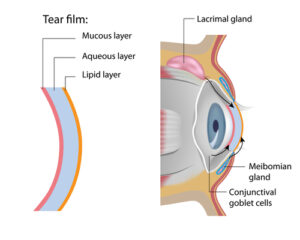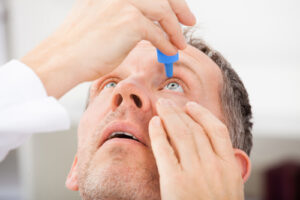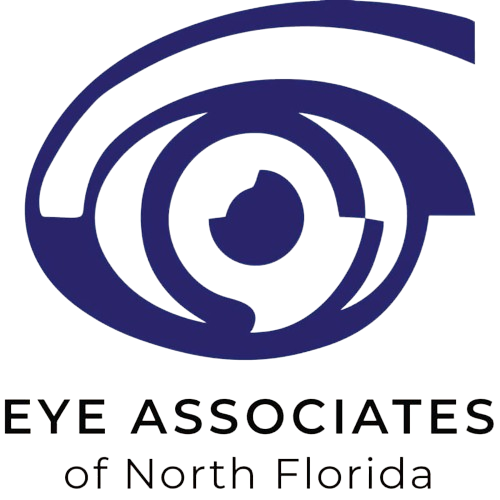How Do I Know If I Have Dry Eye Symptoms?

Do you experience a gritty or itchy sensation in your eyes? If so, you may be one of the 16 million Americans who have dry eye syndrome.
This eye condition can present itself in a variety of ways. It can be challenging to ease your symptoms until you know you have it without proper treatment.
Keep reading to find out if you may have the symptoms of dry eye syndrome and how you can find relief!
What Is Dry Eye Syndrome?

Dry eye syndrome occurs when you can’t produce enough tears, or the tears made lack quality.
A tear has three layers: an oily outer layer, a watery middle layer, and an inner mucous layer. Glands above the eyes produce tears, which drain through the tear ducts in the inner corners of your eyes and flow down through the nose.
The act of blinking coats the ocular surface with a layer of tears called the tear film. Tears are necessary to help focus light in the eye, protect your eyes, and maintain comfort.
Without them, your eyes cannot function correctly, and you can be more susceptible to infection. It can also result in discomfort.
What Causes Dry Eye Syndrome?

Since issues can arise during any point of the tear production process, there are many reasons why tears can be insufficient or inadequate. Decreased tear production can be a byproduct of aging, especially in those experiencing menopause.
Older men and women are almost twice as likely to have dry eyes than younger individuals. The chronic eye condition can occur due to certain diseases, like Sjogren’s syndrome, rheumatoid arthritis, and autoimmune disease. It can also be a side effect of some medications, particularly antihistamines.
In addition, the environment around you can contribute to the onset of dry eye symptoms. Wind and low humidity can cause dryness. So can air conditioning and heating systems.
What Are the Symptoms of Dry Eye Syndrome?
Those with dry eye syndrome may experience a mild to severe degree of the following:
- An itchy or gritty sensation
- Feeling like there’s something in your eye
- Eye fatigue
- Redness
- Light sensitivity
- Difficulty driving at night
- Stringy mucus around the eye
- Blurry vision
- Watery eyes
- Finding it difficult to wear contact lenses
Contrary to what you might think, dry eye syndrome can result in watery eyes. When your eyes are too dry, the eye becomes irritated and tries to offset the dryness by over-producing tears.
The only way to know whether you have dry eye syndrome is with an eye exam. If you are experiencing one or more of these symptoms, our eye doctors at Eye Associates of Tallahassee are here to help your eyes get back to where they should be.
Treating Dry Eye Syndrome
Thankfully, you don’t have to suffer from the bothersome symptoms of dry eye. Having dry eyes can be annoying at best and even painful at worst.
They can get in the way of your ability to perform necessary tasks and enjoy daily life. That’s why our team is here to help you find a solution that works for you. Many patients find that a combination of treatments and small lifestyle changes make the most significant difference.
One of the first treatments many eye doctors start with is artificial tears. Using artificial tears regularly can help restore lubrication to the eye’s surface.

Both over-the-counter and prescription kinds are available. In some cases, your eye doctor may prescribe ointments and creams as well.
Depending on how dry your eyes are, your eye doctor may recommend something called punctal plugs. Punctal plugs are temporary or permanent and are used to drain your tears by implanting a plug in the tear duct.
They increase the number of tears in the eye by stopping them from exiting through the drainage system. Punctal plugs can be quite helpful if your tears evaporate too quickly from your eyes to provide necessary nutrients.
Warm compresses applied to the eyes and lid massages can also help alleviate symptoms.
Lifestyle Changes for Dry Eyes
Some lifestyle changes can help to decrease your risk of developing dry eye and alleviate symptoms. Make sure you are drinking plenty of water to provide adequate hydration to your entire body in addition to your eyes.
It becomes quite challenging to produce the required tears without proper fluid intake. If you feel thirsty, this is already a sign that you aren’t drinking enough water.

A diet rich in vitamin A and omega-3 fatty acids supports ideal eye lubrication. These provide nutrients that aid in the production process of healthy tears.
You can find vitamin A in foods such as liver, carrots, broccoli, and some dairy, and omega-3 fatty acids in fish, flaxseed, walnuts, and vegetable oils.
It is good to avoid smoke and air flowing directly in the eyes, such as from air vents in the car. You might also consider adding a humidifier to the rooms in your house that you spend the most time in.
Since eye strain can be another source that leads to dryness, take frequent breaks when looking at a screen or performing up-close tasks such as reading. When you have to look at a computer, position your screen about twenty inches from your head, and a bit below eye level.
Try to keep eye drops, and artificial tears on you before your eyes feel dry. Using these preemptively can help your eyes stay comfortable. Keep drops and tears in bags or on your desk at work to ensure you’re always prepared.
Ready to find much-needed relief for your dry eye symptoms? Schedule an appointment at Eye Associates of Tallahassee in Tallahassee, FL, today!
The sooner you tackle your dry eye symptoms, the sooner you can get back to doing the things you love again!







